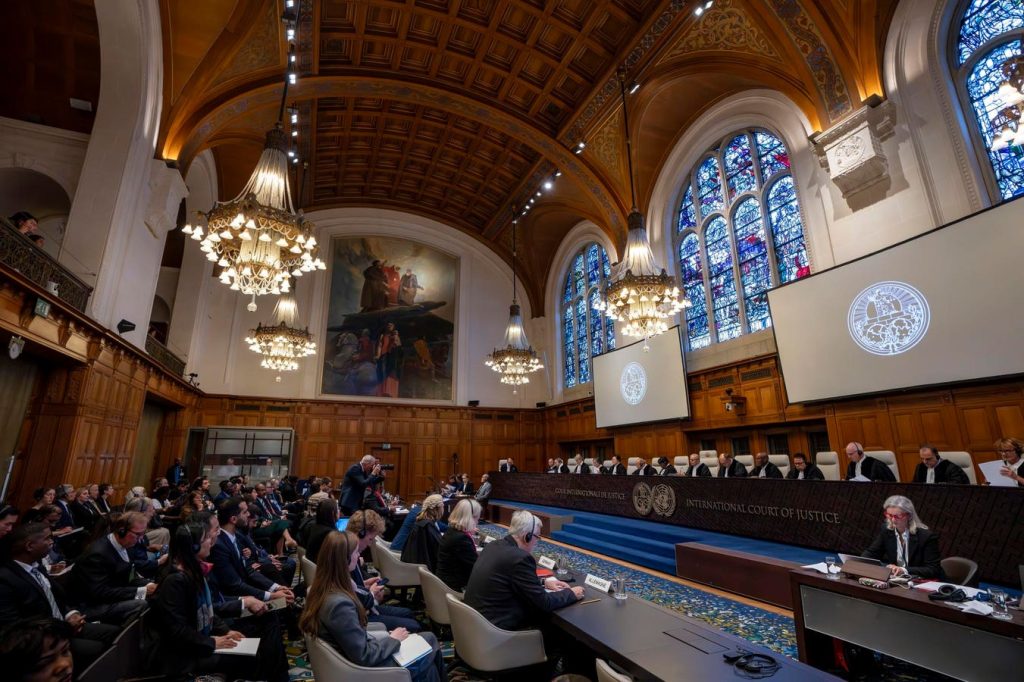On December 4, 2023, the United States presented an oral statement at the International Court of Justice (ICJ) during hearings regarding the legal obligations of states in relation to climate change, responding to a request from the United Nations General Assembly (UNGA). The proceedings aim to clarify the existing financial responsibilities of countries for their contributions to climate change and to outline the necessary actions states must undertake to mitigate its effects. The U.S. firmly contended that it bears no financial liability for historical greenhouse gas emissions and maintains that current human rights laws do not support a right to a healthy environment.
The requirement for the ICJ’s advisory opinion arose from a UNGA request initiated by Vanuatu on March 29, 2023. The court’s guidance, although non-binding, is expected to influence future climate litigation and legislative measures globally. The UNGA posed two essential questions: first, regarding the obligations of states under international law to protect the climate from anthropogenic emissions for both present and future generations; and second, concerning the legal consequences for states responsible for causing significant harm to the climate system, particularly for vulnerable nations and affected populations.
The hearings commenced on December 2, 2023, with Vanuatu and the Melanesian Spearhead Group presenting opening arguments. Representatives from over 100 countries are scheduled to deliver oral statements through December 13. The court has arranged for verbatim written transcripts and daily statements to be published on its website, ensuring transparency in the proceedings. This setup allows real-time access for global audiences, reflecting the gravity of the discussions surrounding climate obligations.
Margaret Taylor represented the U.S. government, emphasizing the seriousness of anthropogenic climate change as one of humanity’s most significant challenges. She recognized the complexity of various human activities contributing to greenhouse gas emissions—including fossil fuel combustion and industrial processes. All intervening countries have underscored the urgent need to address these climate issues, indicating a growing consensus on the gravity of the matter.
In response to the first question posed by the UNGA, Taylor referred to established international frameworks like the UN Framework Convention on Climate Change and the Paris Agreement, emphasizing their roles as foundational documents guiding climate action. She argued that while these treaties set forth important commitments, they hinge on parties’ self-defined Nationally Determined Contributions (NDCs), which must be pursued in good faith. Despite acknowledging a collective responsibility among nations, Taylor argued that the principle of “common but differentiated responsibilities” within the agreements does not equate to a legally binding framework that creates accountability for nations in past climate actions.
Vanuatu’s argument centered on the notion that countries have a due diligence duty to avert acts within their borders that can negatively impact other nations in the context of climate change. Citing a previous ICJ opinion regarding nuclear weapons, Vanuatu highlighted the necessity for countries to be aware of the environmental harm caused by their actions. The U.S. countered that establishing a legal obligation to prevent transboundary harm necessitates general awareness of the risks involved. Furthermore, the linking of human rights to climate impacts emerged as a pivotal issue during the proceedings, with Vanuatu leveraging a recent ruling from the European Court of Human Rights recognizing protection from climate change impacts as a human right.
Taylor, while acknowledging the potential adverse effects of climate change on the enjoyment of human rights, asserted that existing international humanitarian law does not currently obligate nations to reduce greenhouse gas emissions or formally recognize a right to a healthy environment. She indicated the U.S. openness to engaging in discussions aimed at developing such a right but maintained that the advisory proceedings should not delve into claims of past reparations for climate impacts. Her primary concern was that the ICJ’s findings should serve as future guidance for member states instead of acting as a vehicle for holding countries accountable for historical emissions or seeking reparations.
In concluding her statement, Taylor argued that establishing legal liability for climate change would require a concrete connection between specific actions and resultant damages. She emphasized the necessity for showing a clear causal link between a state’s actions and the injuries caused, which would be complicated under international law. This assertion reflects the U.S. stance that prevailing regulations and agreements bound by the UNCCC and Paris Agreement do not extend to liabilities outside of their explicit terms. Notably, the U.S. legal team included several high-ranking officials from the Department of State, indicating the importance of this case for American foreign policy and global climate discourse.

